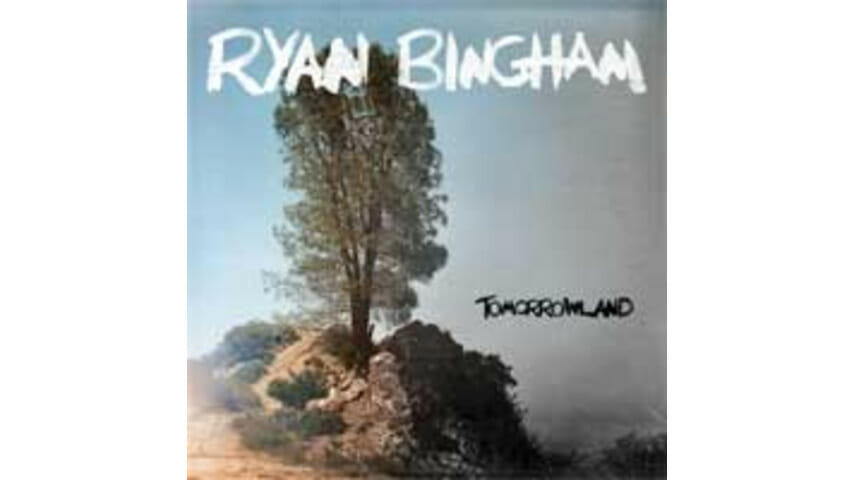
Ryan Bingham tells the economically busted, morally bankrupt world to go fuck itself…
When I sat down to review Ryan Bingham’s newest album, Tomorrowland, I took the usual precautions: I threw back a shot of Jose Cuervo and mentally prepared to walk down a desolate lyrical landscape of seared animal skulls, dust bowls and vultures tearing apart the splayed guts of putrescence.
I’ve listened to Ryan Bingham over the years for the same reason I read Cormac McCarthy or watch Wim Wenders movies: for the catharsis, to sit still in a symphonic sweat lodge where your darkest demons are absorbed into every pore and oozed back out in an ammonic afterglow.
That’s what I knew of Ryan Bingham. The New Mexico-born bull rider turned troubadour, turned gravely-voiced genius who rocketed to international fame in 2010 after winning a bazillion awards—from a Golden Globe to an Oscar—for best original song with Crazy Heart’s “The Weary Kind.”
That’s what I KNEW of Ryan Bingham. But when I pressed play on Tomorrowland, that is not what I got. What I got was so much more.
Tomorrowland is Bingham’s fourth studio album, but it’s his first self-produced one. Here, Bingham cuts ties with the Lost Highway label and Dead Horses band of yore and forms his own indie company—Axster Bingham Records, with his wife. It’s a fitting back-story, because thematically, Tomorrowland is like a good, ol’ fashioned rock anthem of kiss-my-asschaps autonomy.
Tomorrowland is Bingham writing his own story, on his own terms. Count on the classics: dusty vocals and heart worn themes of suffering, economic strife, homelessness, and hopelessness. On track three, “Flower Bomb,” Bingham wails, “They tell us up in heaven there is food to eat/ But for now all we get is this shit on the street.”
And track seven, “Rising of the Ghetto,” is an eight-plus minute, ever-ascending ballad befitting Bruce Springsteen’s heartland rock. But unlike the lumbering ache of songs that Mescalito (2007) gave us, here Bingham is—while not necessarily upbeat—up-tempo. On Tomorrowland in general, Bingham is less acoustic, more electric; less woebegone, more willful; less Anton Chigurh and more Butch Cassidy.
On the second track, “Western Shore,” Bingham sings: “You gotta heal your heart so you can live again another day, live out loud with no one to fear.” And on “Guess Who’s Knocking,” Bingham lays down a railing amp-driven riff that calls to mind the White Stripes’ Icky Thump. “Guess who’s knocking on the door?” Bingham dares. “It’s me motherfucker, I’m knock’n on the door.”
I’ll say one thing’s for sure: Tomorrowland—the album and the red-blooded, rattlesnake-eating rebellious attitude—is no place for the weary kind.